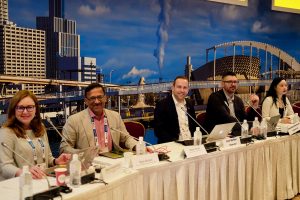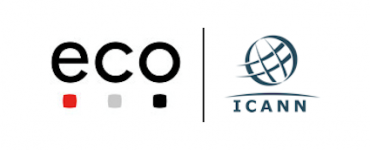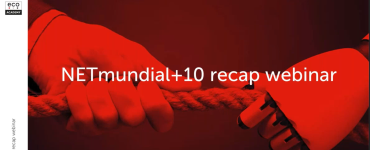The 64th meeting of the Internet Corporation for Assigned Names and Numbers (ICANN) took place in Kobe from 11th to 14th of March 2019. ICANN64 was the Community Forum of 2019, with an attendance of 1,707 participants. The Community Forum features a six-day format that follows the traditional ICANN public meeting structure with a comprehensive agenda covering a wide range of topics and a number of cross-community discussions on key policy issues of broad interest. Including side-meetings, like the Universal Acceptance Steering Group (UASG) workshop on 8th, ICANN64 covered a full week.
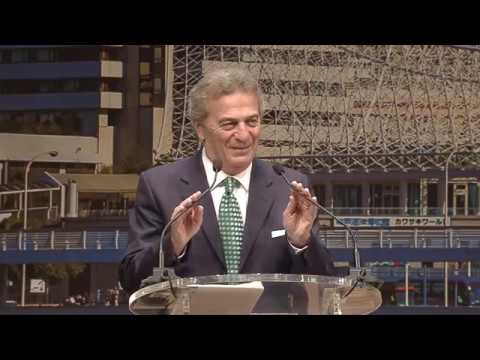
By loading the video, you accept YouTube's privacy policy.
Learn more
EPDP, GDPR and WHOIS Data Access
The Expedited Policy Development Process (EPDP) on the Temporary Specification for Generic Top-Level Domain (gTLD) Registration Data is currently one of the important areas of work for the GNSO and the broader ICANN community. Last May, the ICANN Board adopted a Temporary Specification on gTLD Registration Data as an interim measure to bring existing WHOIS obligations in line with the European Union’s General Data Protection Regulation (GDPR) requirements. This has, in turn, triggered the obligation for the GNSO Council to undertake the EPDP to determine whether to confirm the Temporary Specification as a Consensus Policy. Relevant bylaw provisions require that the EPDP be completed within 12 months of the effective implementation date of the Temporary Specification, in this case, by 25 May 2019.
A few days before the meeting in Kobe, the EPDP team published the final report regarding the first phase of their work. Many did not have confidence that the group, in which – to some extent – fundamentally opposing views are represented, would even make it this far: producing a comprehensive paper of more than 180 pages in length. The report has been approved by the GNSO Council and is currently in a public comment period. The ICANN Board plans to take a decision on the report before the Temporary Specification expires upon its anniversary.
Being a member of the EPDP team to represent the Internet Service Providers & Connectivity Provider Constituency (ISPCP), Thomas Rickert participated in all four meetings of the team plus a number of additional sessions, to give updates to several parts of the community.
During the sessions in Kobe, the EPDP team discussed a variety of issues, including:
- Areas to be worked on in its second phase of work;
- Working methods for the second phase of work;
- Requirements, such as financial and administrative support, to conduct its work;
- Lessons learned from the first phase of work;
- Implementation of the recommendations of the first phase including the work of an Implementation Review Team; and
- Work Plan for Phase 2.
Several issues could not be resolved – at the moment as the EPDP team is waiting for a new Chair to be selected by the GNSO Council to replace Kurt Pritz, who has stepped down from this position.
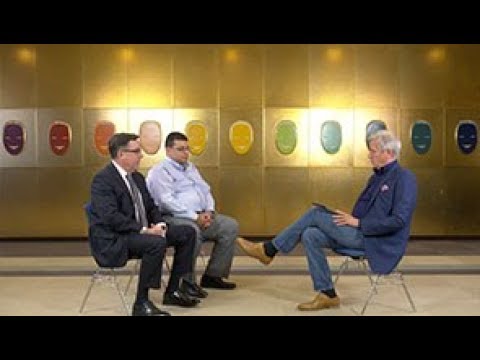
By loading the video, you accept YouTube's privacy policy.
Learn more
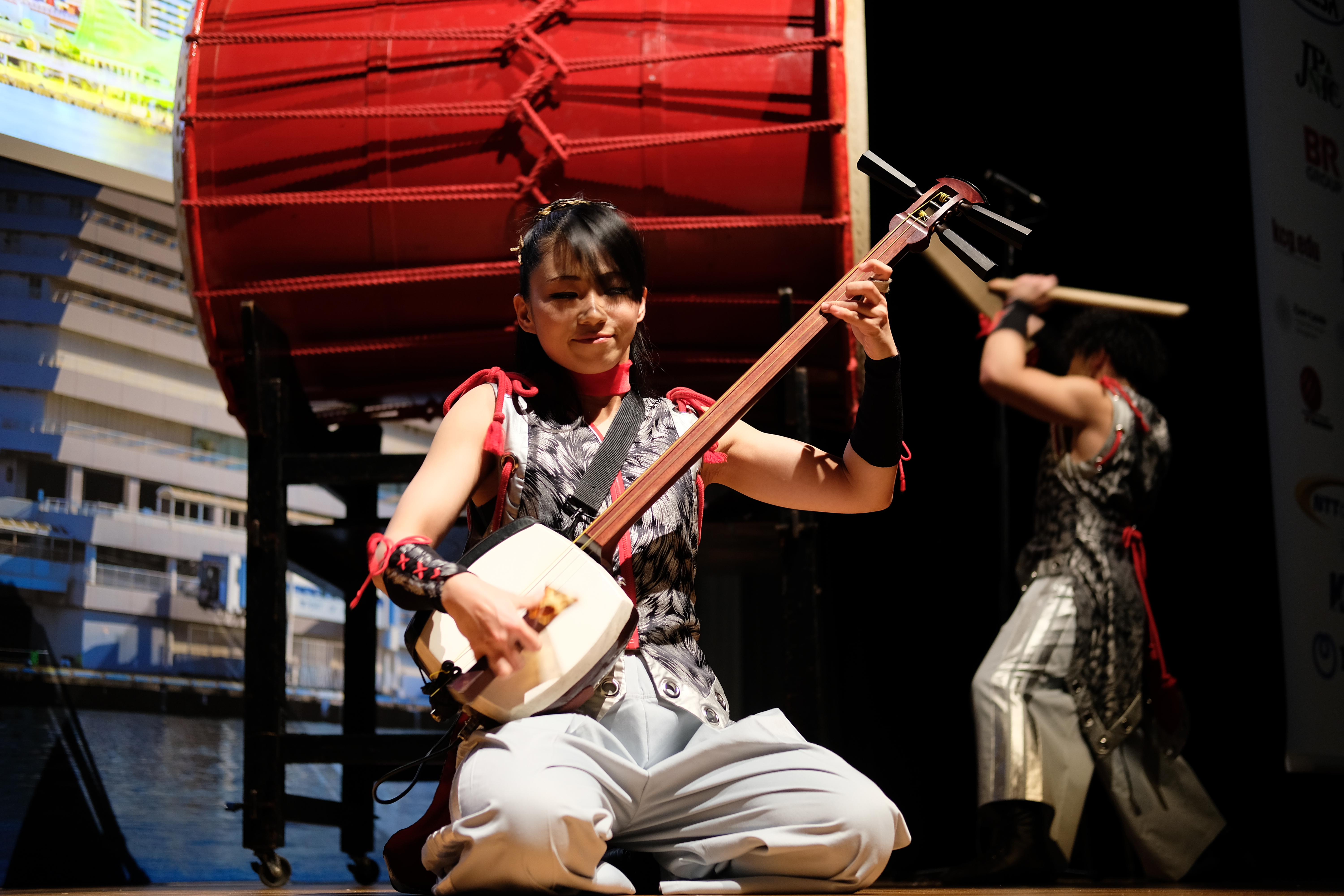
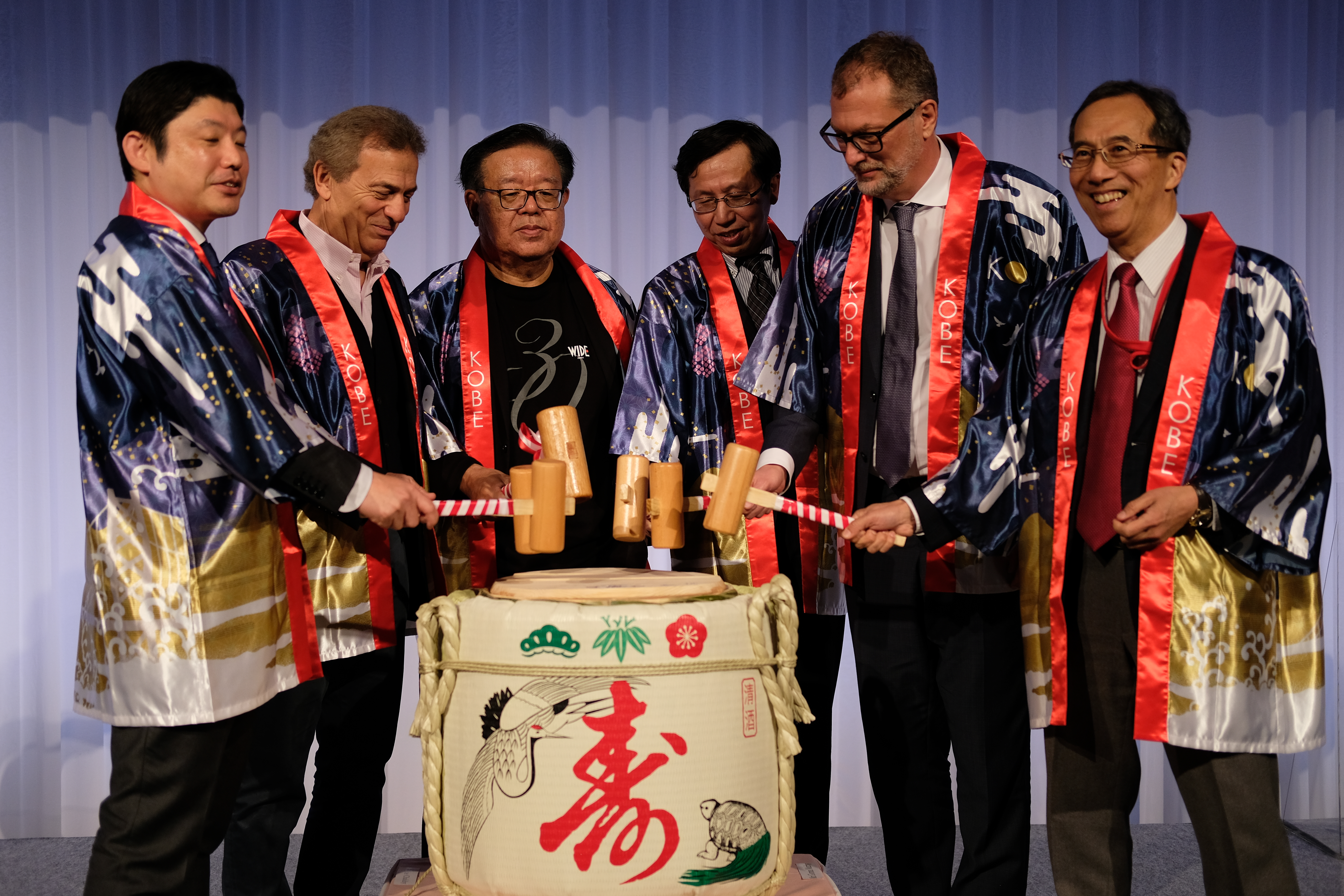
Internet Service Providers & Connectivity Provider Constituency (ISPCP)
The working sessions of the Commercial Constituencies within the Generic Names Supporting Organization (GNSO) to which the Internet Service Providers & Connectivity Providers (ISPCP) contributes, were also still dominated by the discussions regarding the Temporary Specification and the Expedited Policy Development Process (EPDP). Thomas Rickert joined the closed (10 March 2019) and open (12 March) working sessions of the ISPCP to provide updates and to discuss the position of the constituency with regards to the EPDP.
Other topics of interest for the ISPCP in Kobe included the ongoing work in the GNSO Council on the ISPCP Charter and Universal Acceptance, to which Christian Dawson and Lars Steffen gave an update from the UASG workshop, which took place on 8 March 2019. See further details about the UASG further down. The Global Commission on the Stability of Cyberspace (GCSC), represented by Olaf Kolkman (ISOC) and Wolfgang Kleinwächter, gave a presentation on their proposals for norms and policies to enhance international security and stability, and guide responsible state and non-state behavior in cyberspace.
On Wednesday 13 March, the ISPCP held an interactive outreach event on Universal Acceptance, IoT & 5G, and Security during ICANN64 in Kobe, in collaboration with JAIPA, the Japan Internet Providers Association. Panel discussions included:
- Ensuring A Trusted Internet with Universal Acceptance and IDNs, with Maarten Botterman (ICANN Board), Akinori Maemura (ICANN Board), and Ajay Data (Data Infosys)
- The Internet of Things and Network Operations, with Philippe Fouquart (Orange)
- Website / DNS Blocking and Filtering, with John Crain (ICANN Office of PTO), Narelle Clark (Pavonis Consulting), Toshiaki Tateishi (JAIPA), and Afifa Abbas (Banglacom)
- Business Depends on Security, Stability and Resiliency – A Shared Responsibility, with Claudia Selli (ICANN Business Constituency), Scott McCormick (HackerOne), and Mark Svancarek (Microsoft).
In the context of the work on the EPDP, tensions were amplified within the Commercial Stakeholder Group (CSG). The Business Constituency (BC), the Intellectual Property Constituency (IPC), and the ISPCP constantly struggle to reach consensus. In the meeting with the ICANN Board, the CSG asked for the consideration of a new structure for the constituencies in order to overcome the hurdles caused by regularly contrary positions.
In the closed and public ISPCP meeting sessions, the constituency discussed the current status in the Expedited Policy Development Process (EPDP) on the Temporary Specification for gTLD Registration Data, the status of work of the Universal Acceptance Steering Group (UASG), GNSO Council Updates & Council Chair Elections, the review of the ISPCP charter, and the initial report of the Cross-Community Working Group on new gTLD Auction Proceeds (CCWG).
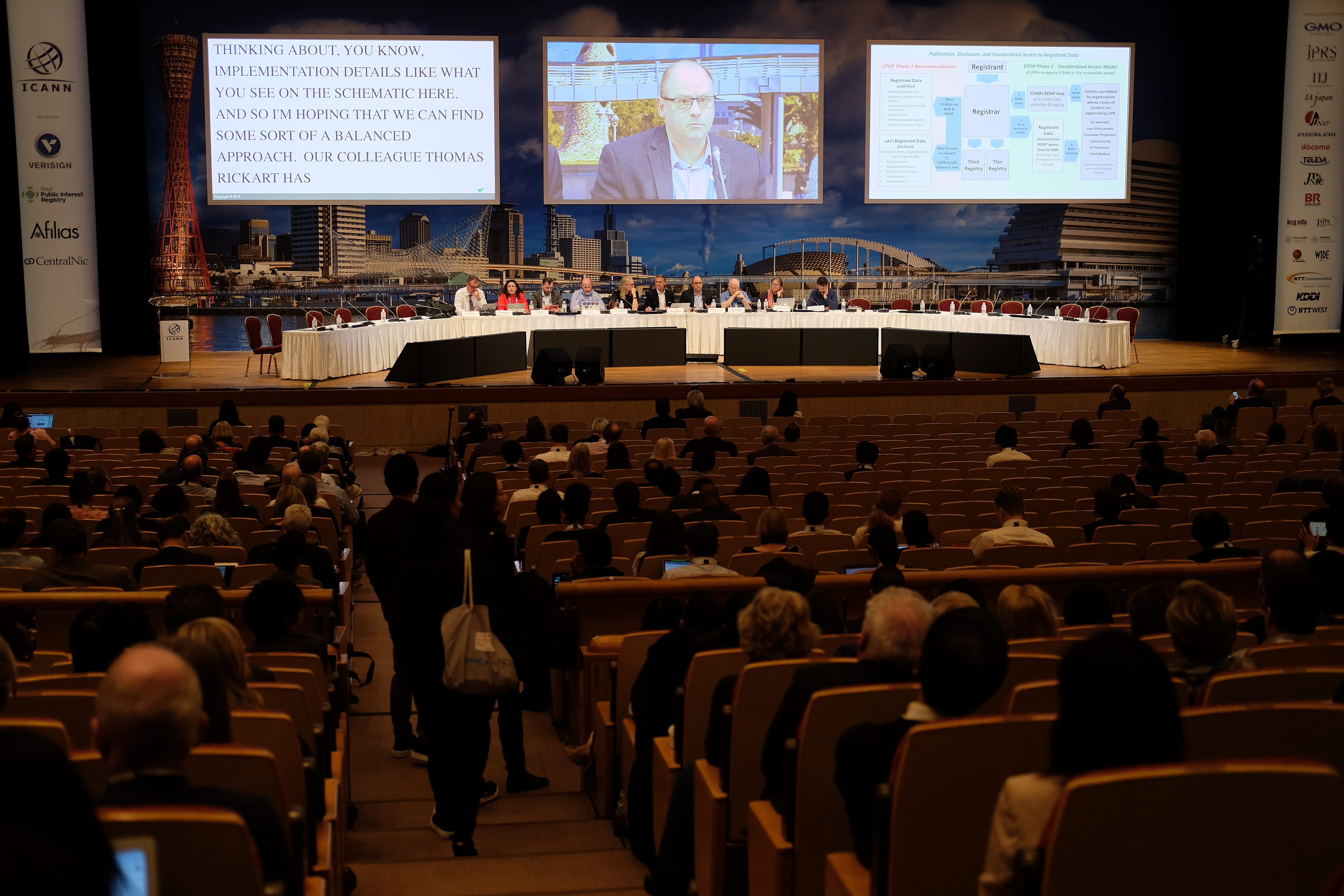
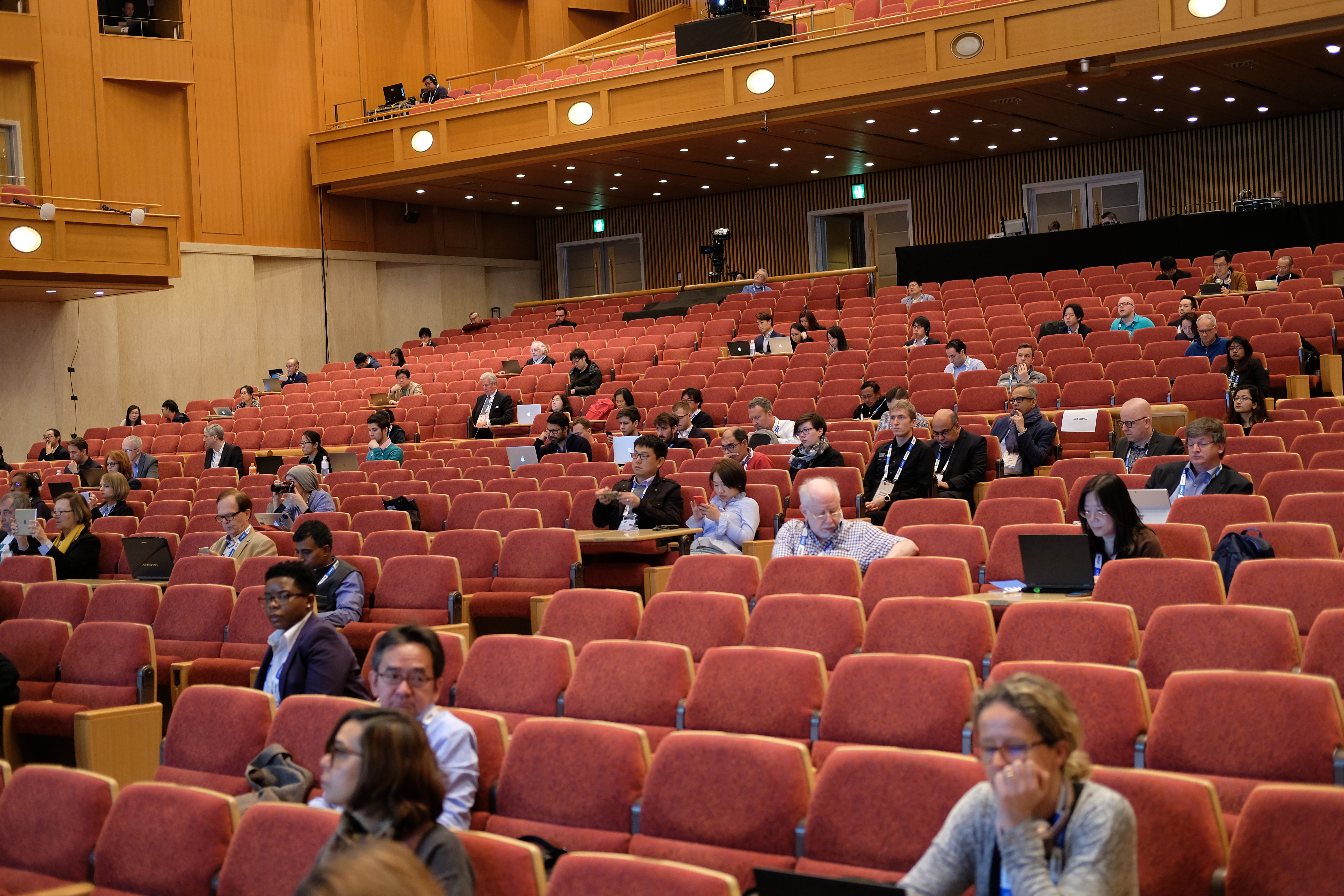
Universal Acceptance Steering Group
Universal Acceptance (and IDNs) was everywhere at the ICANN64 meeting in Kobe Japan in March 2019. This stems, at least in part, from the legacy that former Chair Ram Mohan laid by including Universal Acceptance within one of the five objectives in the ICANN’s Board five year plan.
The week of meetings started with the Universal Acceptance Steering Group (UASG) Workshop on Friday the 8th of March. The group, including most of the new and old leadership, spent significant time on strategic planning and setting the direction for the next few years.
There were five strategic areas developed, each with specific objectives and subtasks that were ranked by the group:
- Amplify UASG message to target audiences
- Develop authoritative resources for Universal Acceptance
- Define and address gaps to UA readiness
- Improve recruitment of active participants within the UASG
- Improve the administration of the UASG
The UASG agreed to expand the number of working groups and to review or create the charters of each. The groups will include: EAI, Measurement, Community Outreach, and Technology.
During a meeting of the ALAC, the members wanted to find a topic that they could use to exercise their network to amplify the objectives. They agreed that Universal Acceptance would be their next topic.
The community convened a Cross-Community Session on Universal Acceptance and IDNs on the last day of the meeting with participants from across the various constituencies:
- Jennifer Chung – .asia / At-Large
- Manal Ismail – NTRA / GAC
- Maria Kolesnikova – Coordination Center for TLD .RU/.РФ / ccNSO
- Ram Mohan – Afilias / Outgoing UASG Chair / SSAC
- Mark Švančárek – Microsoft / UASG Vice-Chair / GNSO
- Dennis Tan Tanaka – Verisign / UASG Vice-Chair / DC DNSI
The panel was moderated by the two UASG Outreach Co-Coordinators Christian Dawson and Lars Steffen.
There was common agreement that UA was an issue that needed to be addressed and there was positive recognition that the UASG was addressing it. In the end, there was a call for people to get their own organizations UA Ready when they return home.
ICANN’s IT Group have been interesting to watch as they pursue UA Readiness. They have revised their initial approach of spinning up a project to a revised approach of including UA in their systems architecture requirements and addressing application through their normal maintenance efforts.
The ICANN CIO Ashwin Rangan reported during the UASG Community Forum that they have completed phase 1 of their UA Readiness project (the ability to handle all ASCII domain names) and were more than half-way through their phase 2 (the ability to handle all non-ASCII domain names). He also explained the challenges of working with vendors who had not been aware of the issues. A fresh case study on ICANN-IT’s efforts will be started in March.
UASG elections were finalized during the meeting. The new office holders are:
- Chair: Ajay Data
- Vice-Chairs: Dušan Stojičević, Mark Švančárek, and Dennis Tan Tanaka
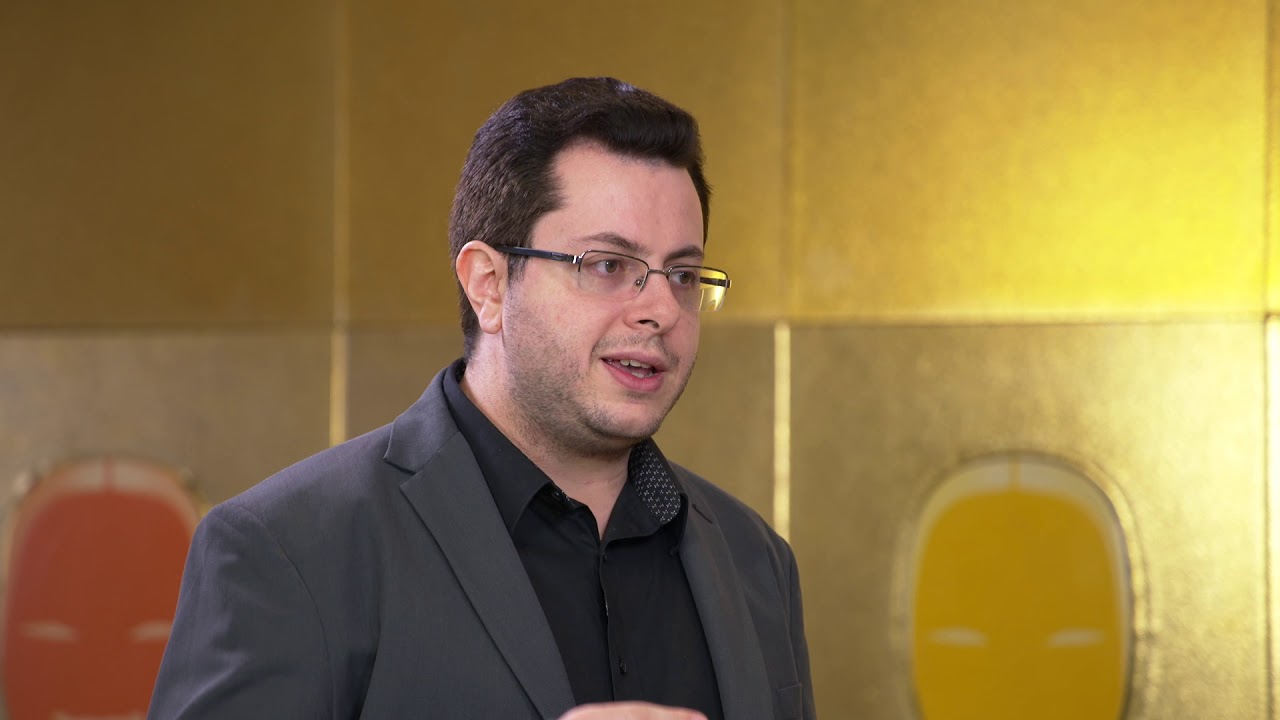
By loading the video, you accept YouTube's privacy policy.
Learn more
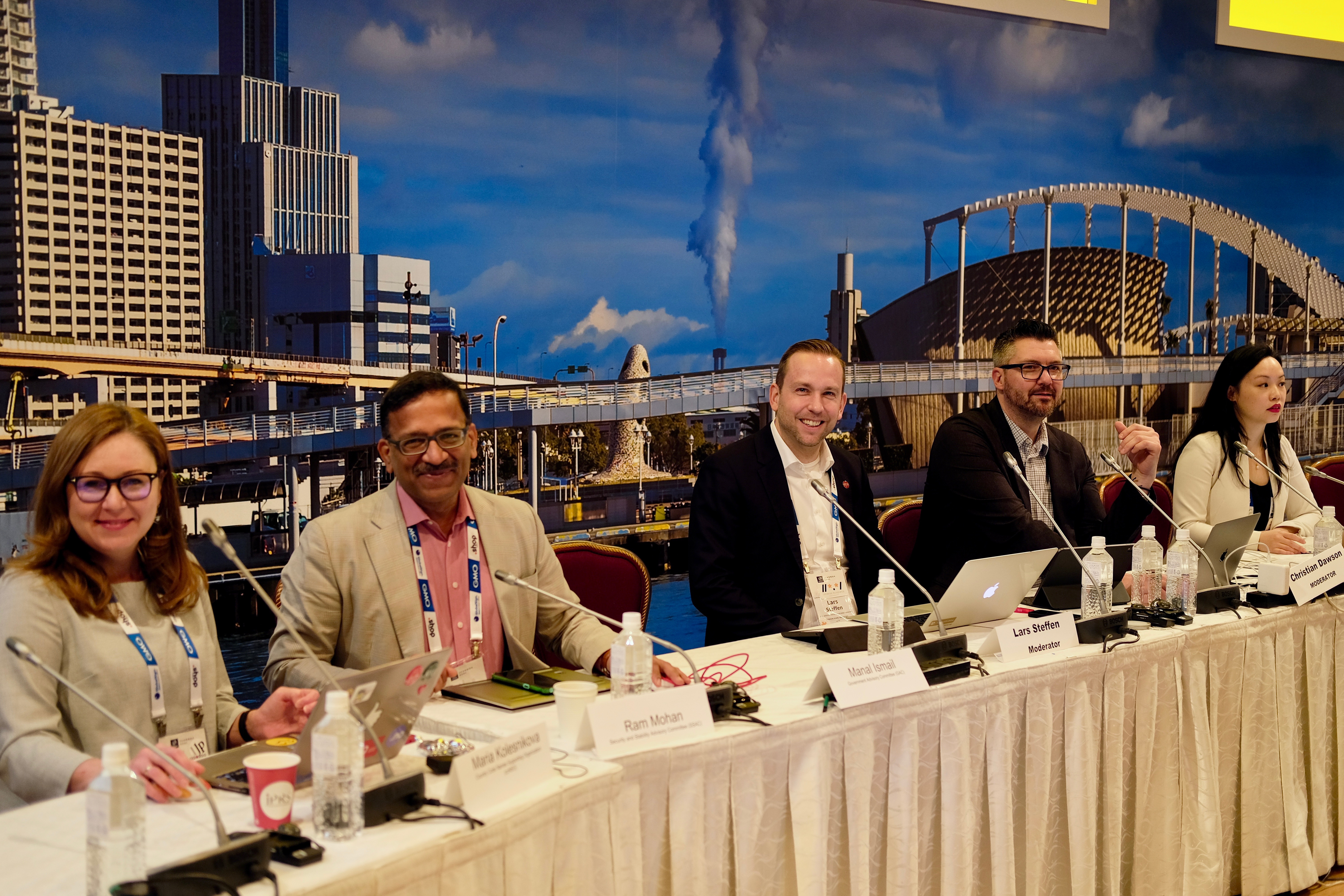
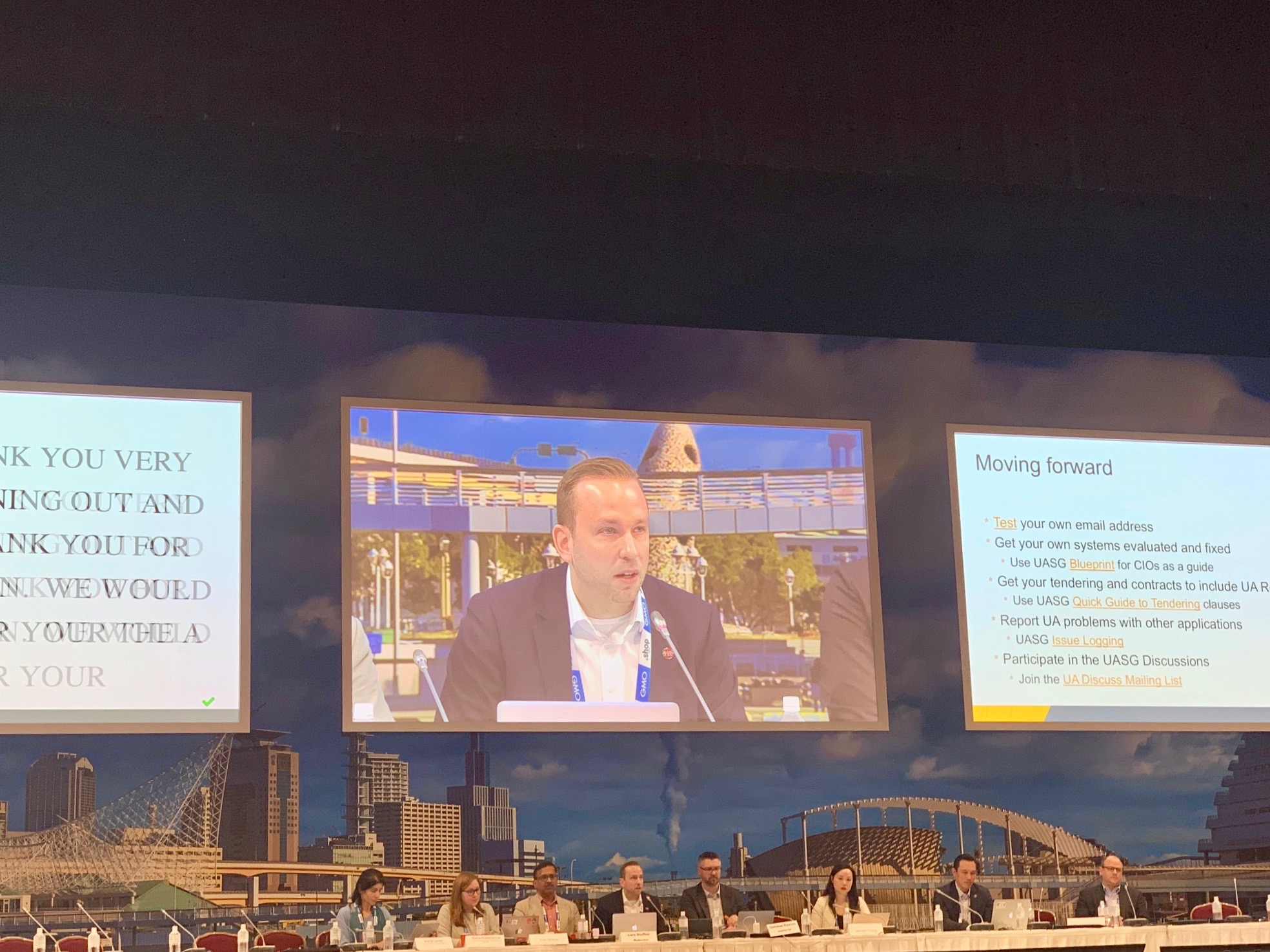
New Generic Top-Level Domains Auction Proceeds
The new gTLD Program established auctions as a mechanism of last resort to resolve string contention. Most string contentions have been resolved through other means before reaching an auction conducted by ICANN's authorized auction service provider. However, it was recognized from the outset that significant funds could accrue because of several auctions. As such, these auction proceeds have been reserved and earmarked until the Board authorizes a plan for the appropriate use of the funds. Board, staff, and community are expected to be working together in designing and participating in the next steps addressing the use of new gTLD auction proceeds. It should be recognized though that these proceeds are to be considered as an exceptional, one-time source of revenue. The CCWG published its draft Initial Report for community comment shortly before ICANN63, presenting those fund distribution mechanisms that demonstrated most potential to meet CCWG expectations as well as conform with legal and fiduciary constraints. See further details about the work plan and approach here or read its most recent newsletter here.
New Generic Top-Level Domain Subsequent Procedures
According to a possible timeline presented by the working group, the earliest possible time for the submission of applications would be Q1 2022.
DENIC & eco host the German Night
DENIC and eco invited their respective ICANN communities on Sunday to meet with their friends and partners at the co-hosted German Night. This time the networking event took place at the Soshuen Garden in Kobe.
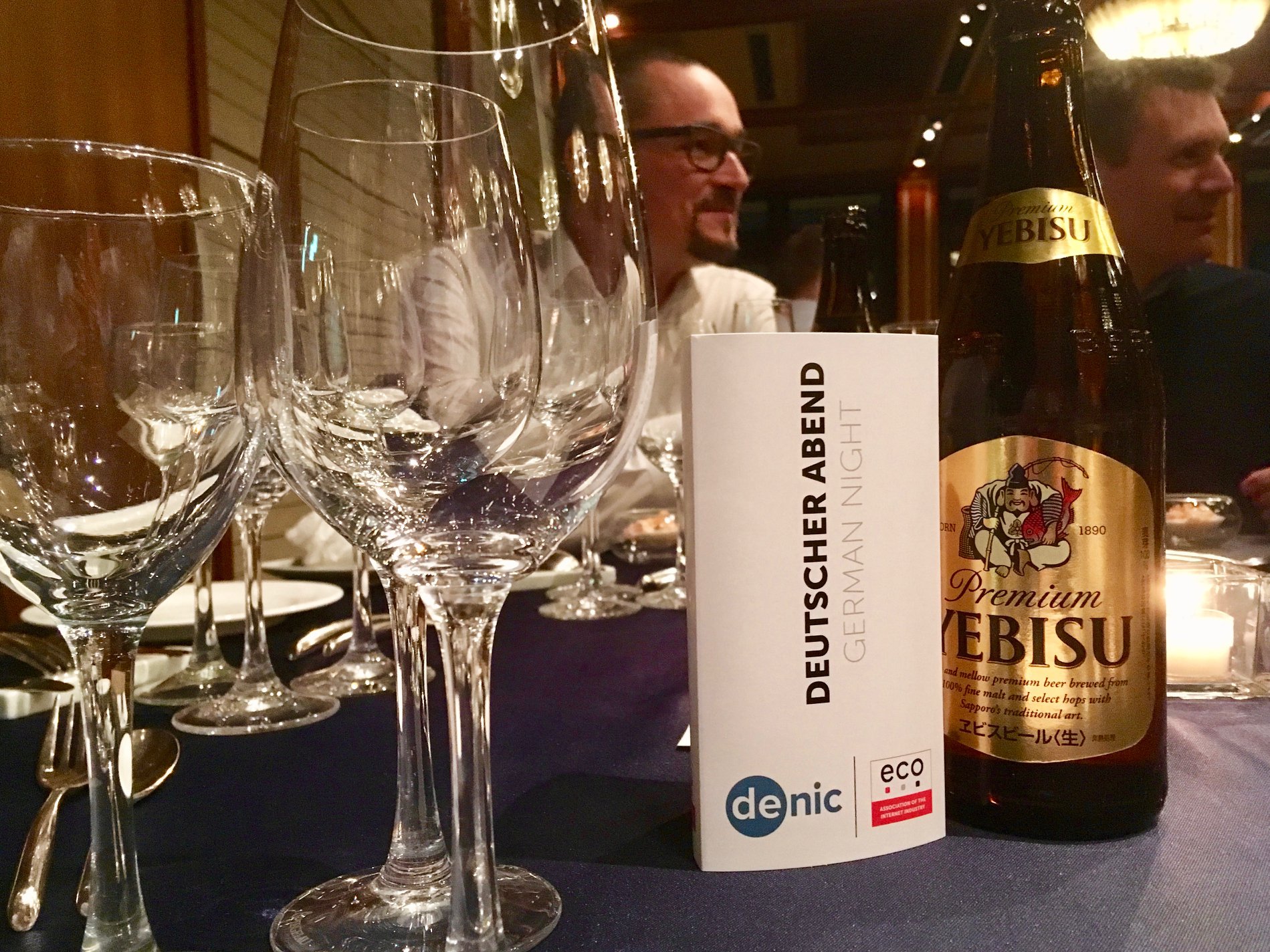
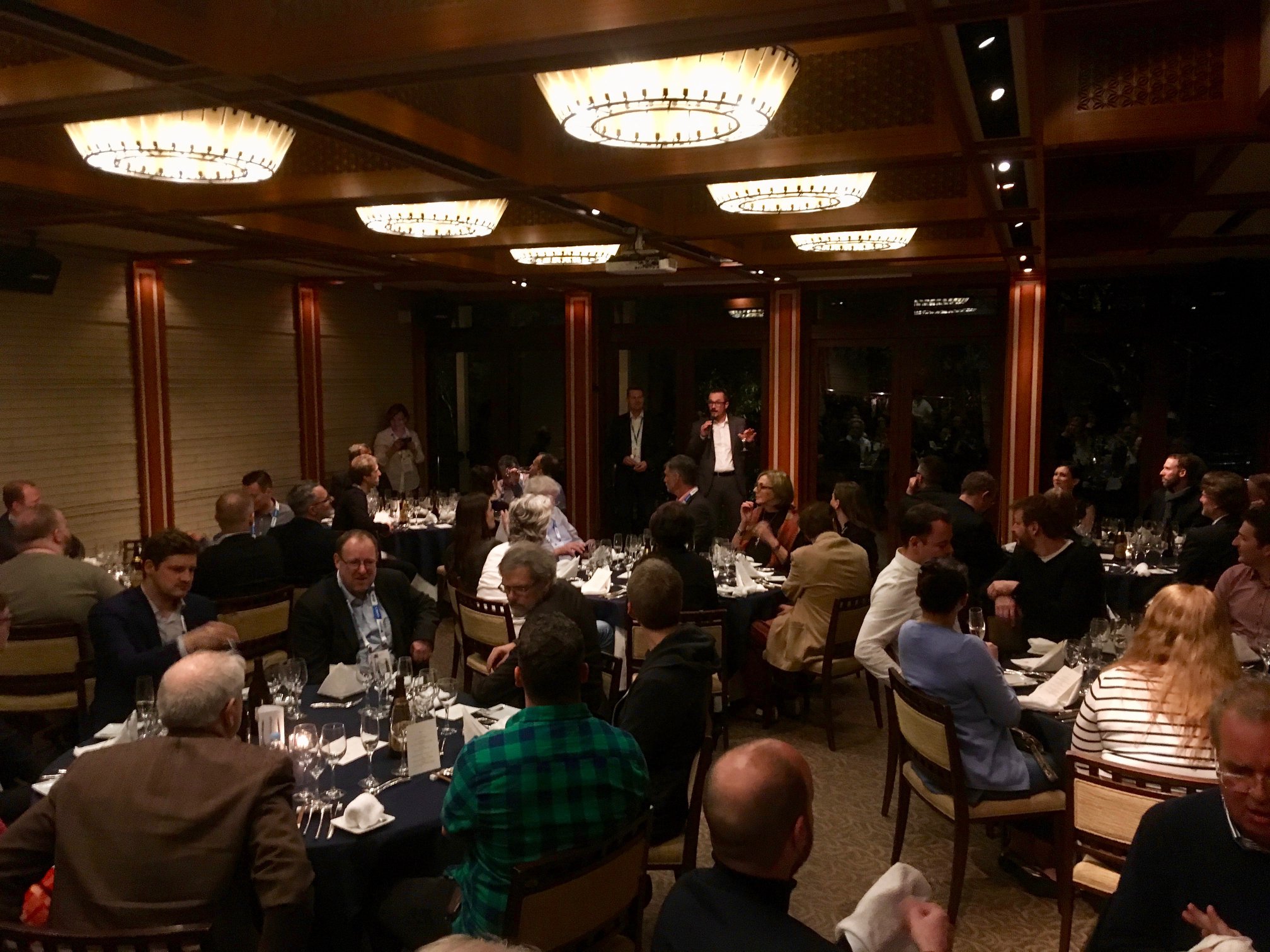

Where was eco active for its members?
Thomas Rickert
- participated in the GNSO - EPDP Team Meeting (1 of 4)
- participated in the GNSO Working Session
- participated in the GNSO - EPDP Team Meeting (2 of 4)
- participated in the Community Engagement Session: TSG on Access to Non-Public Registration Data
- participated in the Cross-Community Session: Next Steps in ICANN's Response to the GDPR
- participated in the GNSO Council with EPDP team session
- participated in the GNSO - EPDP Team Meeting (3 of 4)
- participated in the GNSO Council Meeting
- participated in the GNSO - EPDP Team Meeting (4 of 4)
- participated in the Cross-Community Session: Universal Acceptance / IDNs
- participated in the ICANN Public Forum 2
Wolf-Ulrich Knoben
- participated in the GNSO - CSG Closed Meeting
- presented the ISPCP Constituency at Newcomers Day
- participated in the At-Large Leadership session with GCSC
- participated in the GNSO Working Session
- chaired the GNSO - ISPCP Closed Meeting
- participated in the ICANN64 Welcome Ceremony
- participated in the High Interest Topic: ICANN Strategic Planning
- participated in the Cross-Community Session: Next Steps in ICANN's Response to the GDPR
- participated in the session on New gTLD Auction Proceeds
- participated in the ICANN Public Forum 1
- participated in the GNSO - CSG Open Meeting
- participated in the Joint Meeting: ICANN Board and CSG
- chaired the GNSO - ISPCP Meeting
- participated in the Joint meeting of the CPH and the CSG
- participated in the GNSO - CSG meeting with GNSO Appointed Board Members
- held an introductory speech at the ISPCP-JAIPA outreach event
- participated in the Cross-Community Session: Universal Acceptance / IDNs
- participated in the ICANN65 Kickoff
- participated in the ICANN Board session on Governance
- participated in the ICANN Public Forum 2
Lars Steffen
- presented at the UASG Day 0 Workshop
- participated in the ccNSO: Study Group on Use of Emoji as Second Level Domain
- participated in the GNSO - CSG Closed Meeting
- participated in the GNSO Working Session
- participated in the GNSO - ISPCP Closed Meeting
- participated in the ICANN64 Welcome Ceremony
- participated in the Cross Community Session: ICANN Strategic Planning
- participated in the Cross-Community Session: Next Steps in ICANN's Response to the GDPR
- participated in the GAC: WHOIS Policy (2 of 2)
- participated in the GNSO - CSG Open Meeting
- participated in the GNSO - ISPCP Meeting
- participated in the GNSO - RySG DNA Member Breakfast
- participated in the Lessons learned: How .DK successfully reduced abusive domains
- presented at the UASG Community Forum
- participated in the GNSO - CSG meeting with GNSO Appointed Board Members
- moderated the Cross-Community Session: Universal Acceptance / IDNs
- participated in the ICANN Public Forum 2
Further Documents
The ICANN65 Policy Forum will be held on 24-27 June 2019 in Marrakech, Morocco and will soon be open for registration.
